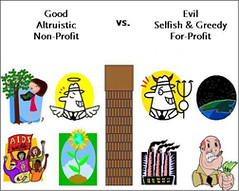
David DiSalvo, freelance writer and self-described research wonk, nicely summed two studies from the journal of Applied Cognitive Psychology that suggest what we remember may not be reality, especially when presented with evidence that seems to support what did not happen.
Can false memories be adopted?
After participants were asked to perform a computerized multiple choice gambling task, they were prompted to withdraw money from a bank when they answered correctly and deposit money when they answered incorrectly. At the end of the task, researchers told participants that they were caught cheating. Some participants were told that there was video evidence showing that they took money (but were not shown the video) after answering incorrectly while others were shown false video “proving” that they cheated. In a second study, participants were accused of cheating more than one time.
The results of both experiments were surprising. When shown fake evidence, nearly 100 percent falsely confessed, and 67 percent (Experiment 1) and 73 percent (Experiment 2) believed they committed a false act. But even when subjects were told that video evidence existed, nearly 100 percent falsely confessed, and 60 percent (Experiment 1) and 13 percent (Experiment 2) developed false beliefs.
In a similar study, participants conducted the task with a second person and were then told the other person had cheated and asked to sign a witness statement. In the second study, nearly 40 percent of the participants who watched the video complied. Another 10 percent signed when asked a second time. Only 10 percent of those who were only told about the video agreed to sign, and about 5 percent of the control group signed the statement.
How does this apply to communication?
A significant amount of communication happens in real time or near real time. In some instances, participants may debate or disagree about any number of issues and topics that sometimes evolve into a drama. However, not all dramas may be legitimate, even when evidence seems to support them as such.
John Mackey's Aug. 11 opinion in the The Wall Street Journal may qualify as a fitting example. While there was no outrage in his opinion piece that offered alternative ideas to health care reform, the retelling of false inferences combined with content taken out of context as evidence has fueled some odd and fabricated outrage.
Today, there were about 100 stories with continuing coverage about the boycott, with an emphasis on a Facebook group dedicated to boycotting Whole Foods. There are about 30,000 members. (There is also an anti-boycott group growing at a faster pace, if you can believe it.)
By comparisons to other cause-driven efforts I've covered — ranging from the cancellation of Jericho and Veronica Mars to outrage over Motrin or push back on United Airlines, any fire behind any boycott seems overblown no matter how some agenda-driven proponents attempt to fan it.
Still, both Whole Foods and Mackey have exhibited some regret over the piece, with Whole Foods apologizing while clarifying that Mackey's opinions are not the official stance of the company. In a way, they've accepted an erred definition that providing any opinion was ill-advised.
It really wasn't ill-advised. But with the case being made with the thinnest of evidence, it may be remembered as such. Weird.
Of course, if anyone prefers a simpler example, consider how an old friend might share a memory we don't recollect. We may accept their account, even if they made it up. And, we're even more likely to accept it if they have a photo or video that offers any evidence, even if the evidence is only implied or supportive without a direct correlation to the story. Malleable, indeed.
























